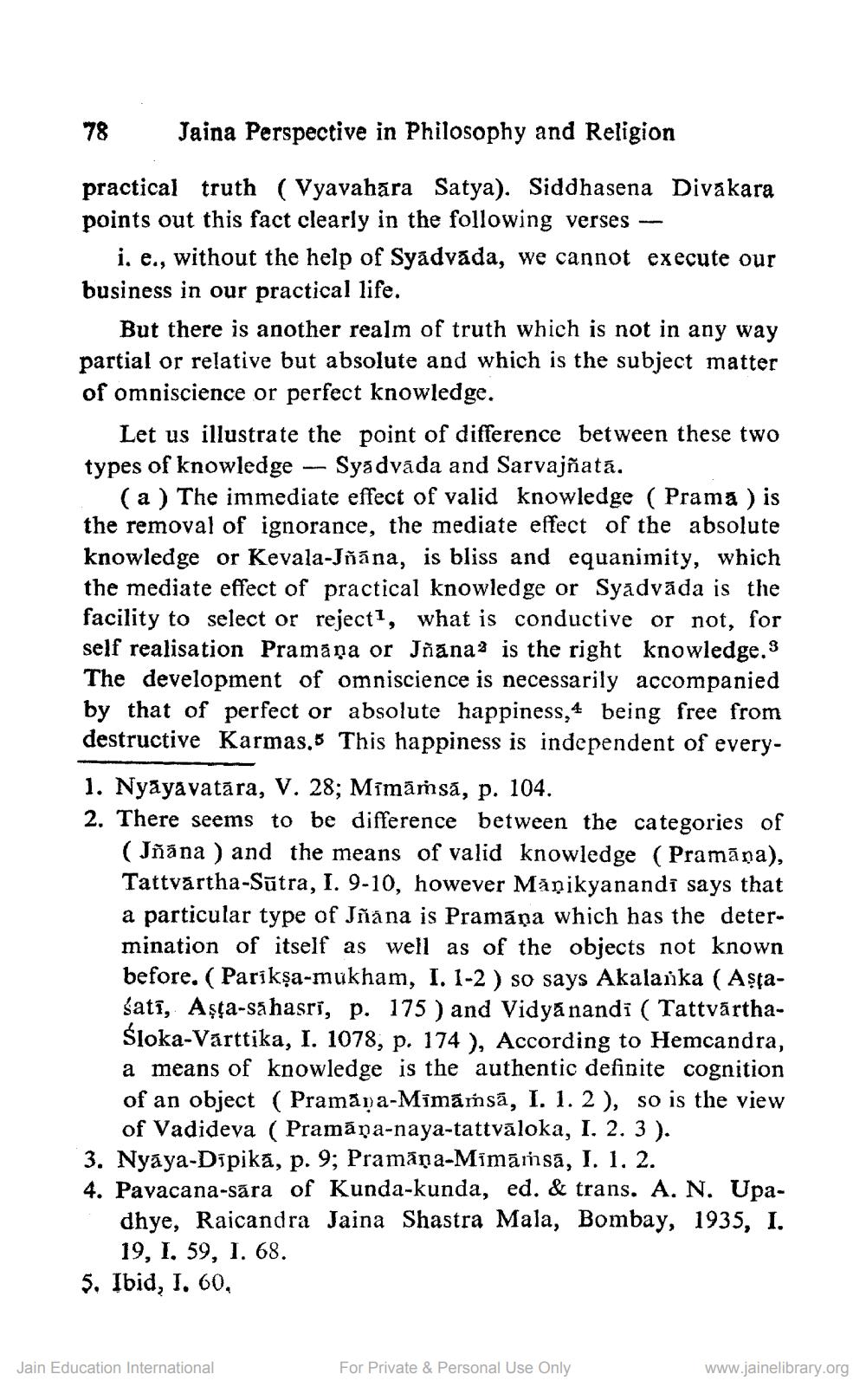________________
78
Jaina Perspective in Philosophy and Religion
practical truth (Vyavahāra Satya). Siddhasena Divakara points out this fact clearly in the following verses -
i, e., without the help of Syadváda, we cannot execute our business in our practical life.
But there is another realm of truth which is not in any way partial or relative but absolute and which is the subject matter of omniscience or perfect knowledge.
Let us illustrate the point of difference between these two types of knowledge - Syadváda and Sarvajñatá.
(a) The immediate effect of valid knowledge ( Prama ) is the removal of ignorance, the mediate effect of the absolute knowledge or Kevala-Jñana, is bliss and equanimity, which the mediate effect of practical knowledge or Syadvāda is the facility to select or reject, what is conductive or not, for self realisation Pramana or Jñanas is the right knowledge. S The development of omniscience is necessarily accompanied by that of perfect or absolute happiness, 4 being free from destructive Karmas." This happiness is independent of every1. Nyayavatāra, V. 28; Mimāṁsā, p. 104. 2. There seems to be difference between the categories of
(Jñana ) and the means of valid knowledge (Pramāna), Tattvärtha-Sūtra, I. 9-10, however Manikyanandi says that a particular type of Jñana is Pramāpa which has the determination of itself as well as of the objects not known before. ( Parikşa-mukham, I. 1-2 ) so says Akalanka ( Aşgasati, Aşga-sa hasri, p. 175 ) and Vidyanandi ( TattvārthaŚloka-Varttika, I. 1078, p. 174 ), According to Hemcandra, a means of knowledge is the authentic definite cognition of an object ( Pramaya-Mímāṁsā, I. 1. 2), so is the view
of Vadideva (Pramana-naya-tattvāloka, I. 2. 3). 3. Nyaya-Dipika, p. 9; Pramāņa-Mimāṁsā, 1. 1. 2. 4. Pavacana-sära of Kunda-kunda, ed. & trans. A. N. Upa
dhye, Raicandra Jaina Shastra Mala, Bombay, 1935, I.
19, 1, 59, 1. 68. 5. Ibid, 1. 60,
Jain Education International
For Private & Personal Use Only
www.jainelibrary.org




